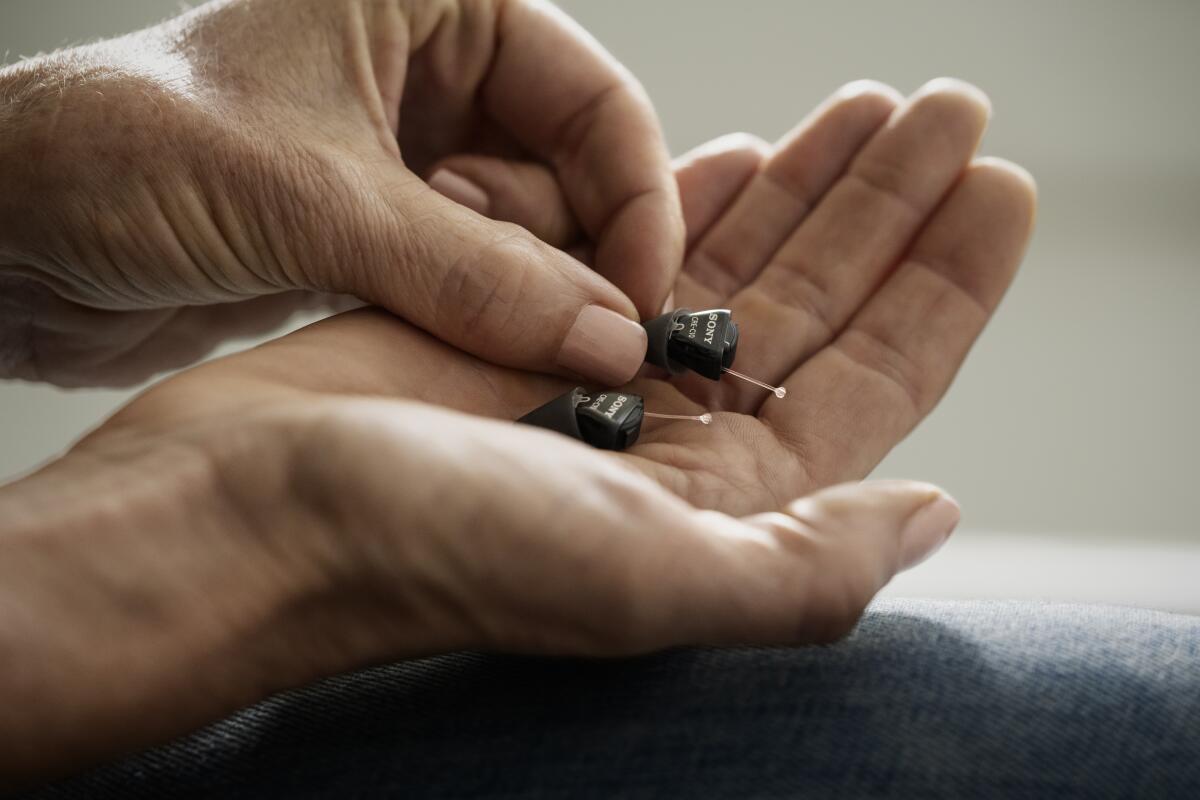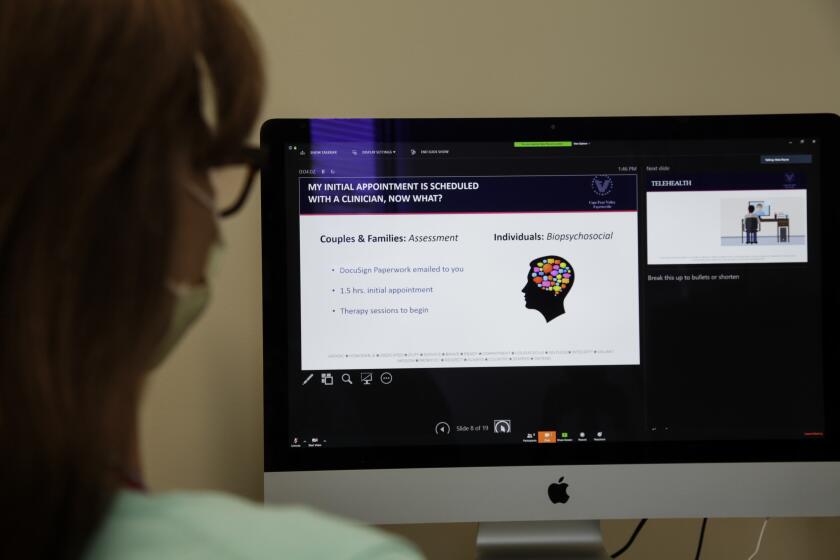Opinion: Most older Americans who need hearing aids don’t use them. Here’s how to change that

- Share via
Having depended on hearing aids for nearly three decades, I’m astounded by the lack of Medicare coverage for devices that can solve a problem afflicting tens of millions of older Americans.
Nearly two-thirds of Americans over age 70 have some degree of hearing loss, and over half of those 75 and older experience impairment serious enough to be considered disabling. But most don’t wear hearing aids.
Because the legislation that created Medicare nearly 60 years ago specifically excluded hearing aids, those who rely on the program’s traditional coverage must pay for them out of pocket. That expense is among the chief barriers to wider use of the devices.
The rules initially blocked me from seeing an out-of-state therapist through telehealth. But depression is depression, whether you live in Texas or California, Alaska or Hawaii.
Age-related hearing loss impedes basic communication and the relationships that depend on it. Expanded access to hearing aids could therefore do no less than enable more older Americans to establish and maintain the social connections that are essential to a meaningful life.
Hearing loss is like an invisible, muffling curtain that falls in front of anyone speaking. Asking people to repeat themselves can yield irritated and hurtful responses. And it’s hopeless to ask a soft-spoken person to speak up. Sometimes it’s easier just to nod and smile.
Many older people I know choose to avoid social gatherings altogether because they can’t hear well. Without hearing aids, I’d stay home too.
In ERs now, you’ll get a tech-driven evaluation. But trading doctors’ humanity and deductive powers for AI and apps has a high cost — dumbed-down medicine.
Hearing loss can harm one’s health in other ways. For example, I’ve written about the need for a comprehensive approach to reducing cancer risk at older ages, including preventive services such as colorectal cancer screening. But these services rely on conversations between patients and their healthcare providers. An older patient’s ability to hear and understand such conversations shouldn’t be taken for granted or ignored.
The Food and Drug Administration did improve access to hearing aids by making some of them available without a prescription in 2022, but the over-the-counter devices are inadequate for serious hearing loss like mine. My private health insurance, meanwhile, started covering hearing aids a few years ago, providing up to $2,500 for them every five years. One hearing aid alone can cost that much or more, however.
Despite its limitations, my private coverage for hearing aids is better than nothing, which is what traditional Medicare provides.
Hearing loss is more common among lower-income people and those without advanced education. The toll from noisy workplaces compounds age-related hearing loss for some. One analysis found that most Americans with a serious hearing disability can’t afford the typical price of hearing aids.
Many of the older adults who can’t come up with these significant out-of-pocket expenses spent their working years in low-wage jobs that our country depends on. Denying them treatment for their hearing loss is a lousy way to treat people who gave years of service to our society.
Although some older adults with hearing loss won’t benefit from hearing aids, Medicare coverage for the devices might encourage more beneficiaries to get their hearing tested so they can get the treatment that’s right for them. And while Medicare coverage alone won’t address the stigma some people associate with hearing aids, the availability of newer, more comfortable and less obvious technology might win over some refuseniks.
Legislation reintroduced with bipartisan support last year would finally correct this glaring gap in Medicare coverage by removing the hearing aid exclusion from the law. There’s no reason to delay action on this any longer. Are our representatives listening?
Mary C. White is an adjunct professor of environmental health at Emory University’s Rollins School of Public Health, a Public Voices fellow at AcademyHealth in partnership with the OpEd Project and a former federal epidemiologist.
More to Read
A cure for the common opinion
Get thought-provoking perspectives with our weekly newsletter.
You may occasionally receive promotional content from the Los Angeles Times.











